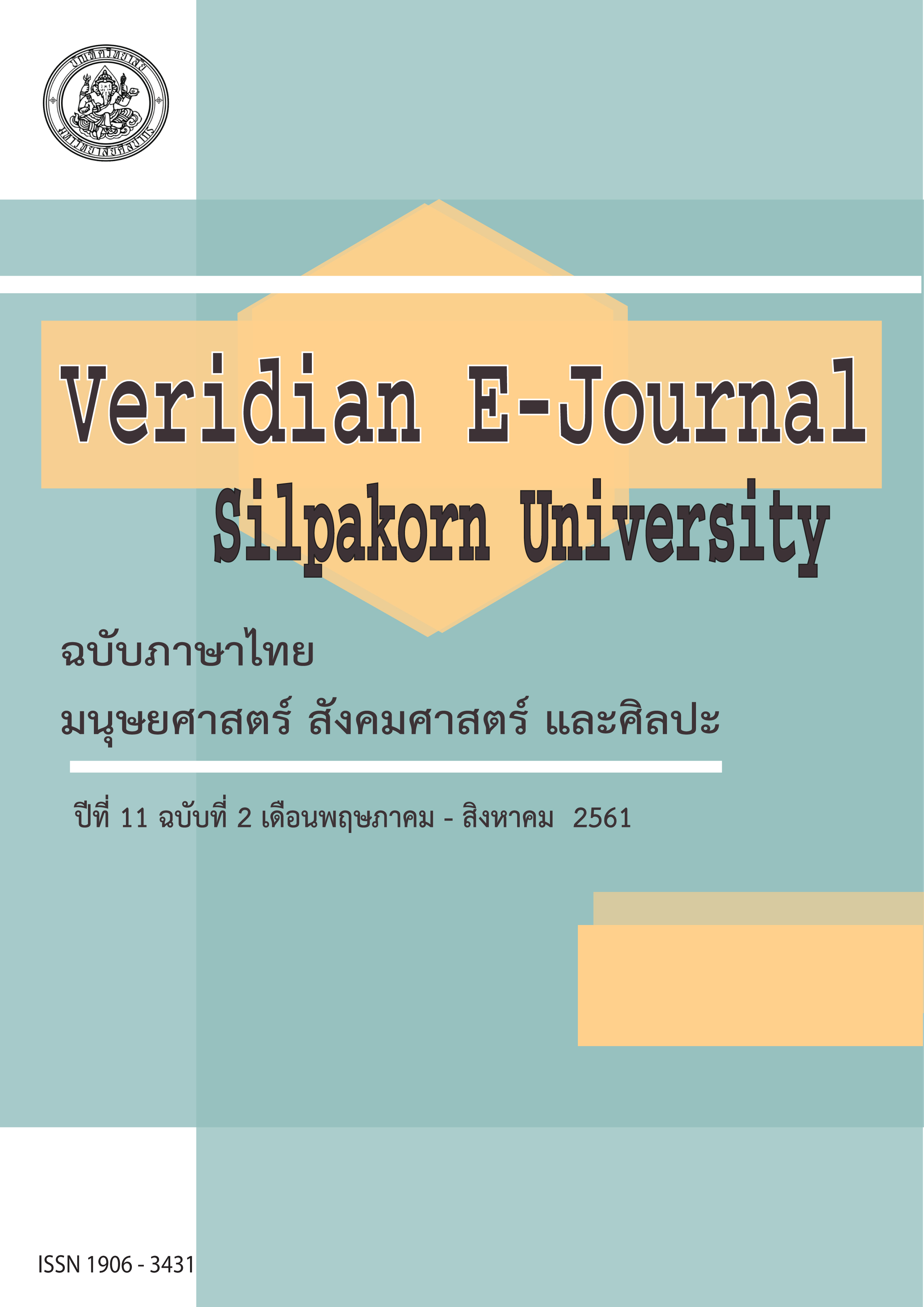แนวทางการจัดการศึกษาเพื่อส่งเสริมการรู้สารสนเทศของนักศึกษาการศึกษานอกระบบในกรุงเทพมหานคร (Guidelines for educational management to promote information literacy of non-formal education students in Bangkok Metropolis)
Main Article Content
Abstract
การวิจัยครั้งนี้มีวัตถุประสงค์เพื่อเสนอแนวทางการจัดการศึกษาเพื่อส่งเสริมการรู้สารสนเทศของนักศึกษาการศึกษานอกระบบในกรุงเทพมหานคร ระเบียบวิธีวิจัยที่ใช้เป็นการวิจัยเชิงพรรณนาโดยเก็บข้อมูลแบบผสานวิธี เครื่องมือที่ใช้ในการวิจัยคือ แบบสำรวจพฤติกรรมการรู้สารสนเทศเก็บข้อมูลกับนักศึกษาการศึกษานอกระบบในกรุงเทพมหานคร และแบบสอบถามสภาพการจัดการศึกษาเพื่อส่งเสริมการรู้สารสนเทศเก็บข้อมูลกับผู้อำนวยการและครู แล้วดำเนินการตรวจสอบแนวทางโดยใช้การสนทนากลุ่มกับผู้ทรงคุณวุฒิทั้งในระดับนโยบายและระดับปฏิบัติการ
ผลการวิจัย พบว่า แนวทางการจัดการศึกษาเพื่อส่งเสริมการรู้สารสนเทศมีดังนี้ 1. การจัดการทางกายภาพ มีมาตรการดำเนินงานดังนี้ สำนักงานส่งเสริมการศึกษานอกระบบและการศึกษาตามอัธยาศัยควรสนับสนุนโครงสร้างพื้นฐานทางกายภาพที่เอื้อต่อการใช้สารสนเทศในการเรียนรู้ ศูนย์การศึกษานอกระบบและการศึกษาตามอัธยาศัยควรมีระบบเครือข่ายภายในศูนย์และมีความพร้อมด้านโครงสร้างพื้นฐานทางเทคโนโลยีสารสนเทศที่ดี สภาพห้องเรียน ศูนย์การเรียนชุมชน กศน.แขวง และห้องสมุดมีบรรยากาศที่ดีในการรู้สารสนเทศ มีมุมส่งเสริมการเรียนรู้ด้วยตนเองและสื่อการเรียนหลากหลายและเป็นปัจจุบัน มีการสำรวจสภาพแหล่งการเรียนรู้เพื่อใช้ในการเรียนรู้สารสนเทศ ส่งเสริมการมีส่วนร่วมของชุมชนในกระบวนการการรู้สารสนเทศ 2. การจัดการเรียนรู้ มีมาตรการดำเนินงานดังนี้ สำนักงานส่งเสริมการศึกษานอกระบบและการศึกษาตามอัธยาศัยควรจัดสรรงบประมาณในการพัฒนานวัตกรรมหลักสูตรที่ใช้กระบวนการรู้สารสนเทศเป็นฐาน ศูนย์การศึกษานอกระบบและการศึกษาตามอัธยาศัยควรจัดเนื้อหาเกี่ยวกับการรู้สารสนเทศบูรณาการในหลักสูตรทุกรายวิชาหรือมีรายวิชาการรู้สารสนเทศ พัฒนาหลักสูตรที่ครอบคลุมการเรียนรู้พื้นฐานการใช้เทคโนโลยีสารสนเทศ จัดการเรียนการสอนให้รู้วิธีการค้นหาความรู้และการวิเคราะห์เนื้อหาสารสนเทศและประยุกต์ใช้เทคโนโลยีสารสนเทศที่เน้นการสืบค้นและการศึกษาข้อมูลด้วยตนเอง สนับสนุนให้มีการอบรมหลักสูตรระยะสั้นในด้านการรู้สารสนเทศ ส่วนครูการศึกษานอกระบบและการศึกษาตามอัธยาศัยควรใช้การรู้สารสนเทศในการจัดการเรียนการสอนการศึกษานอกระบบและควรกำหนดการประเมินการรู้สารสนเทศ 3. การบริหารจัดการ มีมาตรการดำเนินงานดังนี้ สำนักงานส่งเสริมการศึกษานอกระบบและการศึกษาตามอัธยาศัยควรมีนโยบายระดับมหภาคด้านเทคโนโลยีสารสนเทศเพื่อการรู้สารสนเทศ จัดทำแผนยุทธศาสตร์ที่ให้ความสำคัญกับการรู้สารสนเทศและนำไปสู่การปฏิบัติอย่างจริงจังโดยมีการกำหนดนโยบาย แผนงาน โครงการ และจัดสรรงบประมาณรองรับที่เป็นรูปธรรม กำหนดอัตรากำลังที่เกี่ยวกับด้านการรู้สารสนเทศอย่างชัดเจน ใช้เทคโนโลยีสารสนเทศเป็นกลไกหลักเพื่อพัฒนาให้เกิดศูนย์กลางการเรียนรู้ทางการศึกษาในแต่ละพื้นที่โดยการจัดตั้งศูนย์พัฒนาครูการศึกษานอกระบบและการศึกษาตามอัธยาศัยมืออาชีพ ศึกษาวิจัยเรื่องการรู้สารสนเทศ ส่งเสริมชุมชนแห่งการเรียนรู้สารสนเทศของบุคลากรการศึกษานอกระบบที่เกี่ยวข้อง ส่วนศูนย์การศึกษานอกระบบและการศึกษาตามอัธยาศัยควรส่งเสริมให้เกิดวัฒนธรรมองค์กรในด้านการใช้สารสนเทศ ส่งเสริมให้บุคลากรทุกคนในศูนย์มีส่วนร่วมในการกำหนดแนวปฏิบัติเกี่ยวกับการจัดกิจกรรมสารสนเทศและมีการนำไปใช้อย่างจริงจังต่อเนื่อง ให้ครูการศึกษานอกระบบได้พัฒนาตนเองในด้านการจัดการสารสนเทศ ส่งเสริมให้ชุมชน องค์กรชุมชน และองค์กรเอกชนในชุมชน เข้ามามีส่วนร่วมในกิจกรรมสารสนเทศ และมีการพัฒนาศูนย์ดิจิทัลชุมชนให้เป็นแหล่งเรียนรู้ด้านสารสนเทศที่มีคุณภาพ
The purpose of this research was to propose the guidelines for educational management to promote information literacy of non-formal education students in Bangkok Metropolis. The research methodology was descriptive research using mixed method. The research instrument used in this study was a survey of information literacy behavior of non-formal education students in Bangkok and the questionnaire on educational management conditions to promote information literacy with the directors and teachers. The survey was conducted using a group discussion with experts in the field at both policy and operational levels.
The results showed that the guidelines for educational management to promote information literacy are as follows. 1. Physical management, the guidelines are as follows: Office of the Non-Formal and Informal Education should support the physical infrastructure that facilitates the use of information in learning; Non-Formal and Informal Education Center should have a network of centers and be well-equipped with good information technology infrastructure; classroom and the community learning center, non-formal and informal education centers, and the library should have a good atmosphere for information literacy providing the self-learning experience corners with many learning resources; deliver the survey of learning resources for information literacy learning; and promote community participation in the information literacy process. 2. Learning Management, the guidelines are as follows: Office of the Non-Formal and Informal Education should allocate funds for the development of curriculum-based information innovation. Non-Formal and Informal Education Center should provide information about integrated information in all courses or information literacy courses; develop curriculum that covers basic learning of information technology; teach how to find knowledge and analyze information content and apply information technology that focuses on searching and studying information by themselves; support for short training courses in information literacy; non-formal education and informal education teachers should use information literacy in the management of non-formal education and informatics. 3. Management, the guidelines are as follows: Office of the Non-Formal and Informal Education should have a macro-level policy on information technology for information literacy; develop strategic plans that focus on information literacy and lead to serious action by setting policies, project plans, and allocating concrete budgets; set up a concise information literacy rate; use of information technology as the main mechanism to develop the educational learning center in each area by setting up a teacher education center for non-formal education and professional education; conduct research studies on information literacy that promote the information literacy; Non-Formal and Informal Education Center should promote community learning focusing on information literacy; encourage all educational personnel in the center to participate in setting up guidelines for information activities and to actively apply them; non-formal education and informal education teachers should develop themselves in the field of information management; encourage community, community organization and community organization to take part in information activities; develop the community digital center as a source of quality information.
